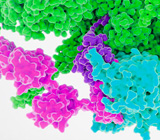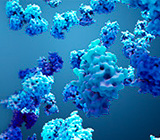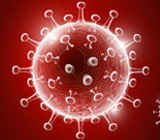-
REAGENT SERVICES
Hot!
-
Most Popular Services
-
Molecular Biology
-
Recombinant Antibody/Protein
-
Reagent Antibody
-
CRISPR Gene Editing
-
DNA Mutant Library
-
IVT RNA and LNP Formulations
-
Oligo Synthesis
-
Peptides
-
Cell Engineering
-
- CRISPR/Cas9 sgRNA
- CRISPR/Cas12a crRNA
- Prime Editing Guide RNA
- Base Editing Guide RNA
- HDR Templates
- gRNA + HDR Template Design Tools
- cGMP Guide RNA
- cGMP HDR Templates
- CRISPR/Cas Proteins
- CAR-T Knock-in Optimization Kit
- CRISPR Plasmids
- CRISPR gRNA Plasmid Libraries
- CRISPR Cell Lines
- Microbial Genome Editing
-
-
PRODUCTS
-
Most Popular Reagents
-
 Instruments
Instruments
-
Antibodies
-
ELISA Kits
-
Protein Electrophoresis and Blotting
-
Protein and Antibody Purification
-
Recombinant Proteins
-
Molecular Biology
-
Stable Cell Lines
-
Cell Isolation and Activation
-
 IVD Raw Materials
IVD Raw Materials
-
 Therapy Applications
Therapy Applications
-
Resources
-
- Pharmacokinetics and Immunogenecity ELISA Kits
- Viral Titration QC ELISA Kits
- -- Lentivirus Titer p24 ELISA KitHot!
- -- MuLV Titer p30 ELISA KitNew!
- -- AAV2 and AAVX Titer Capsid ELISA Kits
- Impurity Test ELISA Kits
- -- BSA ELISA Kit, 2G
- -- Cas9 ELISA KitNew!
- -- Protein A ELISA KitNew!
- -- His tagged protein detection & purification
- -- dsRNA ELISA Kit
- -- Endonuclease ELISA Kit
- COVID-19 Detection cPass™ Technology Kits
-
- Automated Maxi-Plasmid PurificationHot!
- Automated Mini-Plasmid PurificationNew!
- PCR Reagents
- S.marcescens Nuclease Benz-Neburase™
- DNA Assembly GenBuilder™
- Cas9 / Cas12a / Cas13a Nucleases
- Base and Prime Editing Nucleases
- GMP Cas9 Nucleases
- CRISPR sgRNA Synthesis
- HDR Knock-in Template
- CRISPR Gene Editing Kits and Antibodies
-
![AmMag™ Quatro Automated Plasmid Purification]() AmMag™ Quatro automated plasmid purification
AmMag™ Quatro automated plasmid purification
-
![Anti-Camelid VHH]() MonoRab™ Anti-VHH Antibodies
MonoRab™ Anti-VHH Antibodies
-
![ELISA Kits]() ELISA Kits
ELISA Kits
-
![Precast Gels]() SurePAGE™ Precast Gels
SurePAGE™ Precast Gels
-
![Quatro ProAb Automated Protein and Antibody Purification System]() AmMag™ Quatro ProAb Automated Protein and Antibody Purification System
AmMag™ Quatro ProAb Automated Protein and Antibody Purification System
-
![Target Proteins]() Target Proteins
Target Proteins
-
![AmMag™ Quatro Automated Plasmid Purification]() AmMag™ Quatro automated plasmid purification
AmMag™ Quatro automated plasmid purification
-
![Stable Cell Lines]() Stable Cell Lines
Stable Cell Lines
-
![Cell Isolation and Activation]() Cell Isolation and Activation
Cell Isolation and Activation
-
 IVD Raw Materials
IVD Raw Materials
-
![Quick
Order]() Quick Order
Quick Order
-
![Quick
Order]() Quick Order
Quick Order
- APPLICATIONS
- RESOURCES
- ABOUT US
- SIGN IN My Account SIGN OUT
- REGISTER

![Amino Acid Code Amino Acid Code]()
Biology Terms Dictionary
This Biology terms dictionary provides query services for biology and biochemistry terms. Please enter the biology or biochemistry terms you want to search.
List by Alphabet: A B C D E F G H I J K L M N O P Q R S T U V W X Y Z
Mammalian Cell Lines in Protein Expression
Introduction
Mammalian cell lines are essential tools for producing recombinant proteins, especially those requiring post-translational modifications (PTMs) such as glycosylation, phosphorylation, and correct folding. These systems are crucial in biopharmaceutical production, supporting the development of monoclonal antibodies, therapeutic proteins, and viral vectors. Compared to bacterial or yeast systems, mammalian cells produce biologically relevant proteins with native PTMs, making them indispensable for therapeutic applications.
Mechanisms of Protein Expression in Mammalian Cells
Transfection Methods for Protein Expression
Transfection introduces foreign DNA into mammalian cells to drive recombinant protein expression. There are two major transfection strategies:
-
Transient Transfection
In transient transfection, the introduced DNA remains episomal, meaning it does not integrate into the host genome. Protein expression is short-lived, typically lasting a few days, making this method ideal for:
- Rapid protein production for research and screening assays.
- Small-scale experiments in early-stage development.
HEK293 cells are a popular choice for transient transfection due to their high transfection efficiency and adaptability to various conditions.
-
Stable Transfection
In stable transfection, the introduced DNA integrates into the host genome, allowing continuous protein expression. This method is essential for large-scale and long-term production, such as:
- Monoclonal antibody manufacturing.
- Production of therapeutic proteins for clinical use.
CHO (Chinese Hamster Ovary) cells are commonly used for stable transfection because they offer scalability, robust growth in suspension cultures, and the ability to perform human-like glycosylation.
Post-Transfection Processing
After transfection, several steps are necessary to ensure the successful production of recombinant proteins:
- Selection of Transfected Cells: Antibiotic selection (e.g., G418 or puromycin) ensures only transfected cells survive and proliferate.
- Amplification of High-Yield Clones: In stable transfection, techniques like methotrexate (MTX)-mediated amplification help increase protein yield by selecting clones with multiple gene copies.
Post-Translational Modifications (PTMs)
Mammalian cells offer the necessary machinery to perform complex PTMs, such as:
- Glycosylation: Crucial for antibody stability and bioactivity.
- Phosphorylation and disulfide bond formation: Essential for protein folding and function.
These modifications ensure that recombinant proteins produced in mammalian systems resemble their native counterparts in vivo, making them effective in therapeutic applications.
Advantages of Mammalian Cell Lines
- Accurate PTMs and Native Folding: Mammalian cells provide the native environment needed for proper protein folding and biologically relevant modifications.
- Humanized Protein Production: Proteins expressed in mammalian systems closely resemble their human counterparts, ensuring safety and efficacy in therapeutic use.
- High Scalability: CHO cells are easily adapted to large-scale production in bioreactors, supporting commercial manufacturing.
- Flexibility in Expressing Complex Proteins: Mammalian systems can express secreted proteins, membrane proteins, and glycoproteins, which are challenging to produce in prokaryotic systems.
- Regulatory Acceptance: Many biologics on the market, including monoclonal antibodies and enzymes, are produced using mammalian systems, ensuring compliance with industry standards.
Industrial Applications
- Monoclonal Antibodies: CHO cells are the industry standard for producing monoclonal antibodies, which are used in cancer immunotherapy, autoimmune disease treatment, and infectious disease management.
- Therapeutic Proteins: Mammalian cell lines enable the production of complex therapeutic proteins such as erythropoietin (EPO), clotting factors, and interferons, ensuring proper bioactivity through glycosylation and folding.
- Viral Vectors for Gene Therapy: HEK293 cells are extensively used to produce viral vectors, including adenovirus and lentivirus, which are critical for gene delivery in gene therapy.
- Vaccine Production: Mammalian cells also support the production of viral vaccines, such as influenza and COVID-19 vaccines. These systems enable the generation of advanced biologics, including virus-like particles (VLPs) for next-generation vaccines.
GenScript Services and Solutions
GenScript provides comprehensive services to support mammalian cell line development and protein expression:
- Stable Cell Line Development: GenScript develops custom stable cell lines optimized for the production of monoclonal antibodies and therapeutic proteins using CHO and HEK293 cells.
- Transient Protein Expression: GenScript offers rapid protein production services through transient transfection for early-stage development and screening.
- Custom Gene and Protein Services: With expertise in gene synthesis and codon optimization, GenScript provides recombinant proteins tailored to specific research or industrial needs.
Challenges and Future Directions
While mammalian cell lines offer unmatched advantages in protein production, they also present challenges:
- High Production Costs: Complex media requirements and specialized equipment contribute to high operational expenses.
- Time-Consuming Development: Generating stable cell lines can take several months, slowing product launch.
- Optimization of Yield and Productivity: Achieving high protein yields requires careful optimization of growth conditions and vector design.
To address these challenges, future innovations will focus on:
- Synthetic Biology and Genome Editing: Developing more efficient cell lines with optimized metabolic pathways.
- Continuous Bioprocessing Technologies: Enabling seamless, high-yield production to reduce costs.
- Advanced Screening Platforms: Improving clone selection and stability through automation and high-throughput technologies.
Conclusion
Mammalian cell lines are indispensable in the production of complex recombinant proteins, particularly those requiring post-translational modifications. Their ability to produce human-like proteins ensures their continued use in therapeutic applications, including monoclonal antibodies and viral vectors. With ongoing advancements in biotechnology, such as genome-edited cell lines and improved bioprocessing methods, mammalian expression systems will continue to drive innovation in pharmaceuticals and biotechnology.
- Tags:
- Protein
Related Biology Tools
-
GenSmart™ Codon Optimization
GenSmart Optimization is a free online tool for performing codon optimization to improve gene expression. GenScript's patented algorithms are integrated into the tool to optimize the computing capability of high-performance sequence generation.
-
DNA Construct Design Tool
GenSmart™ Design is a free online DNA construct design tool developed by GenScript. GenSmart™ Design has two design modules, the Create Construct module for individual plasmid design and the Create Library module for DNA library design.
-
Codon Frequency Tables
This online tool shows commonly used genetic codon frequency table in expression host organisms including Escherichia coli and other common host organisms.
Service and Products

Protein Expression
GenScript recombinant protein and rAb services provide high quality recombinant proteins and rAbs for a variety of downstream research applications.

Bacterial Expression
One-stop service from Sequence to Protein starting from $1600, 4 weeks.

Insect Expression
GenScript's BacuVance baculovirus expression system was developed by our in-house team of scientists for virus production and expression of recombinant proteins from baculovirus-infected insect cells.

Mammalian Transient Expression
Proprietary High Density (HD) expression system, enhance the protein yield up to 100 fold, achieve antibody titers up to 3 g/L.

Reagents for COVID-19 Research
Gram level, ready to ship RBD proteins, ACE2 assay cell lines and pseudovirus.
-
Top Search
-
Hot Glossary
-
Antibody
If you know of any terms that have been omitted from this glossary that you feel would be useful to include, please send detail to the Editorial Office at GenScript: website@genscript.com
If your term is adopted, we will send 1,000 EzCoupon points to your GenScript account.
-





































